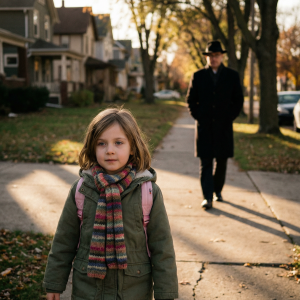The school called. My son had been in a physical altercation.
My husband and I were livid, but my mother-in-law, a former educator, remained unnervingly composed.
Rather than launching into a lecture, she simply placed a pen and notebook in front of him.
We exchanged confused looks.
Then she offered a gentle smile and said, “When your voice fails you, let your pen speak instead. Begin with what wounded you.”
Our son, Rayan, barely 13, stared at her like she’d lost her mind.
His lip was swollen, one knuckle still bleeding slightly.
According to the principal, he’d slammed another student into the lockers and unleashed a string of profanities.
Rayan isn’t aggressive by nature. He’s the type who checks the stove three times before we leave home.
But clearly, something had been building beneath the surface.
“Come on,” my mother-in-law, Malati, coaxed softly, pressing the pen into his palm once more.
“We’re not going anywhere.”
He let out an exasperated breath but eventually started writing.
Ten minutes passed before he slid two pages across to her.
She absorbed them in silence.
Her expression shifted from concern to understanding.
She handed the pages to my husband and me.
The writing was unpolished, but brutally honest.
The student Rayan had confronted had been tormenting him relentlessly for weeks.
Labeling him “charity case” because I juggle two jobs and my husband recently started rebuilding his career after being laid off.
Mocking Rayan’s secondhand shoes, claiming they “reeked of being broke.”
The line that shattered us: “I just needed him to stop humiliating me in front of everyone.”
We sat there, stunned.
We’d had no idea.
He’d never mentioned a single word at home.
Malati rested her hand on Rayan’s shoulder and said quietly, “Language is your primary defense. Don’t resort to violence before you’ve weaponized your words.”
That moment marked the beginning.
We didn’t grasp it at the time, but that seemingly minor incident became the catalyst that rescued our family from something far more destructive.
Because truthfully, this wasn’t just about the fight.
This was about everything we’d been keeping buried.
Following the incident, Rayan faced a three-day suspension.
My husband, Sunit, advocated for grounding him indefinitely.
But Malati intervened.
“He needs validation, not discipline,” she argued.
“You’re both in survival mode constantly. Nobody’s actually communicating.”
She’d identified the problem perfectly.
We’d been in crisis mode since Sunit’s layoff eight months earlier.
I’d added overnight pharmacy shifts to our income.
Sunit cobbled together temporary work, driving for Uber between job applications.
We maintained civility with each other, but the warmth had evaporated.
No arguments, no connection. Just… mechanical coexistence.
That weekend, we established something different.
Malati dubbed it “Table Time.”
Each evening, for thirty minutes minimum, we’d gather at the dining table.
Technology banned. Distractions eliminated.
Just tea and genuine conversation.
Initially, it felt forced.
Rayan wouldn’t make eye contact.
Sunit kept glancing at his phone.
I was too exhausted to formulate meaningful questions.
But Malati anchored us.
She’d share memories from her classroom years, pose unconventional questions like,
“If today had a color, what would yours be?”
We’d groan internally, but we participated.
And gradually, imperceptibly, the dynamic transformed.
On the third evening, Rayan mentioned a teacher who’d allowed him to retake a bombing quiz.
He actually smiled recounting it.
The first genuine smile I’d witnessed in weeks.
Seven days later, he contributed his own question to the table:
“When you were teenagers, did anyone bully you?”
Sunit and I locked eyes.
He inhaled slowly.
“Sikh institution in Mumbai,” he began.
“I wore a turban. This one kid called me a terrorist daily until I finally emptied ink all over his belongings.”
My jaw dropped.
My husband had never disclosed this.
Rayan leaned forward, fascinated.
“They suspended you?”
“Worse,” Sunit admitted.
“My father made me scrub down the entire boys’ locker facility as ‘restitution.’ Though he also coached me on delivering devastating verbal comebacks without profanity.”
We actually laughed together.
Malati simply sipped her tea, eyes sparkling with satisfaction.
By the second week, Rayan had progressed beyond processing his anger—he was crafting poetry.
One piece centered on his worn-out sneakers.
He titled it “Frayed Tongues and Knotted Laces.”
I discovered it accidentally and wept in the utility room.
Malati urged him to submit it to the school publication.
He adamantly refused.
Called it embarrassing nonsense.
So she submitted it herself.
The unexpected outcome?
They ran it in the newsletter.
Even better—his English instructor described it as “an understated gut-punch” and invited him to join the creative writing collective.
He returned home that afternoon practically glowing.
Not from the validation.
But because finally, someone recognized him for what he’d created, not what he’d destroyed.
Meanwhile, our financial situation remained challenging.
Sunit continued his job search.
I still worked marathon shifts.
But something fundamental had shifted.
Because we had “Table Time.”
One evening, Rayan asked about a bracelet I never remove.
A delicate silver band—easy to overlook.
I paused, then explained.
“This belonged to my mother. She sold everything else during the conflict, but concealed this. She told me, ‘Every woman deserves one thing she chose purely for herself.'”
Rayan absorbed this thoughtfully.
Then observed, “That explains why you never purchase anything for yourself, doesn’t it?”
That quiet perception destroyed me.
The following week, Sunit arrived home clutching a small package.
Inside sat a handcrafted bracelet from a street artisan.
Woven fibers and colorful beads. Nothing expensive.
The accompanying note read: For the woman holding everyone else together.
I completely fell apart.
Not because of the gift itself.
But because it proved he’d started truly hearing me again.
Then another complication emerged.
Malati developed a persistent cough.
Initially subtle, just a nagging irritation.
She dismissed it casually.
“Delhi pollution. It haunts me everywhere.”
But after fourteen days, her complexion had noticeably faded.
She stopped enjoying her evening tea ritual.
Stopped participating in Table Time consistently.
I scheduled a medical appointment.
She attempted to cancel it.
Insisted she wouldn’t squander money on “elderly respiratory issues.”
I refused to budge.
The diagnostic results arrived seven days later.
Stage 2 lung cancer.
Despite never touching a cigarette in her entire life.
Our household went silent once more.
But this time, we actively battled the silence.
Rayan relocated Table Time to her bedside.
He performed his latest poetry for her.
Sunit prepared her comfort foods—lentils heavily spiced with ginger.
I rearranged my schedule to finish by early evening.
Malati’s treatment protocol commenced immediately.
Chemotherapy. Medications. Crushing fatigue.
Yet she never missed our nightly gathering.
One evening, she whispered to Rayan,
“Your words carry more power than mine ever did.”
He met her gaze and responded,
“They only have strength because you gave them life.”
She smiled warmly.
“Then make me one promise.
When I’m too weak to speak, you’ll continue writing. For everyone.”
He agreed without hesitation.
Her health deteriorated as spring arrived.
But her determination never wavered.
She made us swear to maintain Table Time afterward.
“Especially during conflicts. Most importantly then,” she’d insist.
We lost her on a mild April morning.
Rayan tucked a folded poem into her hands.
He prohibited anyone from reading it.
Said it belonged exclusively to her.
Following the funeral, the house felt suffocatingly empty.
But that same evening, Rayan repositioned the chairs around our table.
He prepared three cups of tea.
Placed one before her vacant seat.
Sunit and I sat down wordlessly.
“I wrote something,” Rayan announced.
He retrieved a wrinkled page and read aloud:
“She taught me to articulate before I attacked.
To communicate before I condemned.
To absorb before I abandoned.
Now I write so she remains.”
We all wept openly.
All three of us.
That’s when understanding crystallized for me.
Malati hadn’t simply prevented another altercation.
She’d fundamentally redesigned how we functioned as a family.
We stopped reacting impulsively.
Began responding thoughtfully.
Stopped merely surviving.
Started genuinely listening.
Six months forward, Sunit secured a position in technical support at a community college.
Nothing prestigious, but consistent.
He began returning home with anecdotes again—about eccentric faculty and students who consider “admin123” adequate security.
I eliminated one job from my schedule.
Actually slept occasionally.
Started keeping a journal myself.
And Rayan?
He captured second place in a statewide youth writing competition.
His submission?
A narrative titled “The Woman Who Taught Me How to Speak.”
We didn’t request to preview it.
He distributed copies the evening before the awards event.
In his story, Malati becomes “Mrs. Lila,” an unassuming elderly woman who materializes in a young man’s existence precisely when he’s transforming into someone bitter.
She doesn’t lecture.
She witnesses.
She permits mistakes.
But refuses to let him feel erased.
The closing sentence devastated me:
“Some people offer guidance. Some enforce boundaries. But rare individuals give you vocabulary. And once you possess that, violence becomes obsolete.”
We applauded most enthusiastically at the ceremony.
And sobbed most quietly during the drive home.
Now during every meal, someone still poses the Table Time question:
“What color defined your day?”
We’ve encountered responses like “muddy olive,” “sunset coral,” and once, “espresso brown but comforting.”
And each time, I silently honor Malati.
For demonstrating that restoration doesn’t originate from punishment.
It emerges from expression.
We still disagree sometimes.
Financial pressures persist.
Grief ambushes us at unexpected moments.
But now, we discuss it openly.
We process it through writing.
And when language fails, we simply exist in silence—together.
Because occasionally, the perfect words arrive late.
But they invariably arrive.
If you’ve invested time reading this, thank you genuinely.
Embrace the reserved souls in your world.
Motivate your children to write—even when it’s imperfect.
And if you recognized yourself somewhere in this narrative… pass it forward.
Someone somewhere might desperately need it today.
💬 Share this if it resonated. You might never know whose life it touches.





